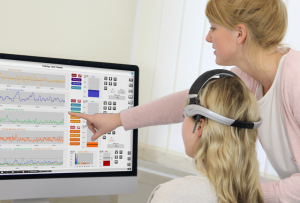Living with Depression
Depression is a multifaceted mental health disorder that transcends mere sadness, enveloping individuals in a pervasive sense of despair, worthlessness, and emotional numbness. It is a debilitating condition that can significantly impair one’s ability to function in daily life, affecting personal relationships, professional endeavors, and overall well-being. Understanding the lived experience of depression is essential to fostering empathy and developing effective interventions for those afflicted.
At its core, depression is characterized by a dysregulation of mood and an overwhelming lack of motivation and interest in activities that were once pleasurable. For many individuals, this emotional state manifests as a profound sense of hopelessness. The cognitive distortions that accompany depression often lead to a distorted self-perception, wherein the individual may view themselves through a lens of inadequacy. This self-deprecating narrative can be compounded by societal stigma, which further complicates the experience of those living with this condition. The fear of judgment or misunderstanding can lead to social withdrawal, reinforcing feelings of isolation and amplifying depressive symptoms.
One of the most challenging aspects of living with depression is the unpredictability of its symptoms. Unlike transient feelings of sadness, clinical depression can permeate every aspect of life. Individuals may find themselves in a state of emotional volatility, fluctuating between bouts of intense sorrow and moments of relative calm. This unpredictability can introduce significant anxiety, as the individual grapples with the potential return of deep-seated despair. Furthermore, physical symptoms such as fatigue, changes in appetite, and sleep disturbances can accompany emotional distress, creating a vicious cycle where the mind and body are both burdened by the affliction.
The social repercussions of depression are profound. Relationships can suffer under the weight of the disorder, as friends and family may struggle to comprehend the complexities of the individual’s experience. The inability to articulate feelings or the overwhelming sense of despair can lead to misunderstandings and fractures in personal connections. The very act of reaching out for help can be hindered by an internal dialogue that suggests one is a burden to others, perpetuating a cycle of loneliness. In this way, the experience of depression becomes not only an internal struggle but also a social one, as the afflicted person may find themselves alienated from their support systems.
Despite the daunting challenges posed by depression, it is essential to recognize that recovery is possible. Therapeutic interventions, including cognitive behavioral therapy, psychotherapy, and medication, have shown efficacy in alleviating symptoms and aiding individuals on their journey to recovery. Engaging in supportive communities, whether through therapy groups or peer support, can foster a sense of belonging and understanding. Additionally, lifestyle modifications—such as regular exercise, a balanced diet, and sufficient sleep—can serve as adjuncts to treatment, improving an individual’s overall quality of life.
It is crucial to dismantle the stigma surrounding mental illness, particularly depression, to create an environment where individuals feel safe discussing their experiences and seeking help. Public education campaigns that demystify depression can foster empathy and understanding, allowing those affected to emerge from the shadows of isolation. Furthermore, the integration of mental health education in schools and workplaces can facilitate early recognition of symptoms and encourage proactive discussions.
Living with depression is an arduous journey that requires tremendous resilience and fortitude. The experience is often marked by a profound struggle against an invisible enemy, characterized by a relentless sense of despair and isolation. Yet, it is also a testament to the human capacity for endurance and the possibility of healing. By fostering a culture of compassion and understanding, society can empower individuals to seek help, thereby transforming the narrative surrounding depression from one of despair to one of hope and recovery.
What is Depression?
Depression is a complex and multifaceted mental health disorder that significantly impacts individuals’ emotional, cognitive, and physical well-being. Characterized by persistent feelings of sadness, hopelessness, and a lack of interest in previously enjoyable activities, depression transcends a mere temporary state of sadness; it is a serious and treatable medical condition. Understanding depression requires an exploration of its symptoms, causes, and the implications it has on individuals and society.
Clinically, depression is diagnosed through a set of criteria outlined in the Diagnostic and Statistical Manual of Mental Disorders, Fifth Edition (DSM-5). Common symptoms include a pervasive sense of sadness, irritability, fatigue, difficulties in concentration, changes in appetite or sleep patterns, feelings of worthlessness or excessive guilt, and recurrent thoughts of death or suicide. These symptoms persist for a duration of at least two weeks and can severely impair one’s ability to function in daily life, affecting personal relationships, occupational performance, and overall quality of life.
The causes of depression are multifactorial and can be understood through a biopsychosocial lens, incorporating biological, psychological, and social dimensions. On a biological level, neurotransmitter imbalances—particularly involving serotonin, norepinephrine, and dopamine—have been identified in individuals with depression. Genetic predisposition also plays a role; those with a family history of mood disorders may be at a higher risk of developing depression themselves. Research has shown that the interplay of genetics and environmental factors can influence the likelihood of onset.
Psychologically, cognitive patterns contribute significantly to the development and persistence of depression. Cognitive distortions, such as negative thinking and pessimism, can create a self-perpetuating cycle of despair. Individuals suffering from depression may engage in self-blame, catastrophizing, or an inability to see positive outcomes, exacerbating their condition. Furthermore, traumatic life events, chronic stress, and a history of abuse can be pivotal in initiating depression, particularly in predisposed individuals.
The social context also plays a crucial role in the emergence and exacerbation of depressive symptoms. Societal pressures, economic instability, and social isolation can increase vulnerability to depression. In modern society, the stigma surrounding mental health issues often discourages individuals from seeking help, exacerbating feelings of isolation and helplessness. Furthermore, the rise of digital communication, while fostering connectivity, has also led to increased experiences of loneliness and comparison, contributing to rising rates of depression among adolescents and young adults.
The implications of depression extend beyond the individual, affecting families, communities, and the healthcare system. The World Health Organization (WHO) recognizes depression as a leading cause of disability worldwide, signifying its profound impact on societal health and productivity. The economic burden is considerable; lost productivity, increased health care costs, and the prevalence of comorbid disorders, such as anxiety and substance abuse, add layers of complexity to managing depression on both an individual and societal level.
Recognizing and addressing depression is paramount. While the condition may seem insurmountable, effective treatments are available. Psychotherapy, particularly cognitive-behavioral therapy (CBT), has proven effective in altering negative thought patterns and promoting healthier coping mechanisms. Medications, such as selective serotonin reuptake inhibitors (SSRIs), can also help rebalance neurotransmitter levels, alleviating symptoms for many individuals.
In addition to professional interventions, lifestyle modifications can play a supportive role in managing depression. Regular exercise, a balanced diet, adequate sleep, and strong social support networks can enhance resilience against depressive episodes. Mindfulness practices, such as meditation and yoga, have gained traction as complementary approaches to traditional treatments, promoting emotional regulation and reducing anxiety.
Depression is a significant mental health challenge that demands comprehensive understanding and action. As both a personal and societal issue, recognizing the symptoms, causes, and effects is crucial for fostering an environment where individuals can seek help and access effective treatments. As awareness of depression continues to grow, it is essential to dismantle the stigma surrounding mental health issues, ensuring that support systems are in place to assist those in need. Through education, compassion, and ongoing research, we can pave the way for a deeper understanding of depression and its place in the fabric of human experience.
What are Some Common Treatments for Depression
Depression is a pervasive mental health disorder characterized by persistent feelings of sadness, hopelessness, and a lack of interest or pleasure in activities that were once enjoyable. Affecting millions of individuals globally, it can significantly impair daily functioning, disrupt relationships, and hinder overall quality of life. Fortunately, advancements in psychological and medical research have paved the way for various effective treatment modalities for depression. The following delineates the most common treatments for depression, including psychotherapy, pharmacotherapy, lifestyle changes, and alternative therapies, highlighting their benefits and limitations.
Psychotherapy
Psychotherapy, or talk therapy, is often regarded as a cornerstone in the treatment of depression. There are several forms of psychotherapy, with cognitive-behavioral therapy (CBT) and interpersonal therapy (IPT) being among the most widely utilized.
Cognitive-behavioral therapy focuses on identifying and altering negative thought patterns and behaviors that contribute to depressive symptoms. By teaching individuals to reframing their thought processes, CBT equips them with coping strategies to manage their emotions and behaviors. Research has demonstrated that CBT can be as effective as medication for many individuals and is particularly beneficial for those who prefer a non-pharmacological approach.
Interpersonal therapy, on the other hand, emphasizes improving interpersonal relationships and social functioning, which can play a significant role in the onset and maintenance of depression. By addressing themes such as grief, conflict, and role transitions, IPT helps patients develop skills to enhance their emotional responses and improve their relational dynamics.
While psychotherapy is effective for many, its limitations include accessibility issues, as not everyone has access to trained therapists. Additionally, the success of therapy often relies on the individual’s willingness to engage in the process and explore uncomfortable emotions.
Pharmacotherapy
Alongside psychotherapy, pharmacotherapy represents another principal treatment for depression. Antidepressants are the most common pharmacological intervention and are categorized into various classes, including selective serotonin reuptake inhibitors (SSRIs), serotonin-norepinephrine reuptake inhibitors (SNRIs), and atypical antidepressants.
SSRIs, such as fluoxetine and sertraline, are frequently prescribed due to their relatively favorable side effect profile and safety compared to older treatments. They work by increasing serotonin levels in the brain, which is believed to play a critical role in regulating mood. SNRIs, such as venlafaxine, similarly enhance mood by affecting both serotonin and norepinephrine levels.
Recent years have witnessed a growing interest in atypical antidepressants, such as bupropion and mirtazapine. Bupropion, for instance, is often favored for patients seeking to avoid weight gain or sexual side effects commonly associated with SSRIs.
However, pharmacotherapy is not without its challenges. Side effects ranging from nausea to sexual dysfunction can deter patients from adhering to their treatment regimens. Additionally, finding the appropriate medication can be a trial-and-error process, as individual responses to antidepressants vary widely.
Lifestyle Changes
The incorporation of lifestyle modifications into the treatment plan is increasingly recognized as vital in managing depression. Regular physical activity has been shown to enhance mood and alleviate depressive symptoms, as it promotes the release of endorphins and other neurotransmitters that foster feelings of well-being. Nutritional factors, likewise, play a crucial role in mental health; diets rich in omega-3 fatty acids, whole grains, and vitamins are associated with lower rates of depression.
Sleep hygiene is another crucial element, as disrupted or poor-quality sleep can exacerbate depressive symptoms. Establishing consistent sleep patterns and creating a conducive sleep environment can significantly improve mood and overall mental health.
While lifestyle changes can positively influence mental health, they are often most effective when used in conjunction with psychotherapy and pharmacotherapy. Individuals may struggle to implement these changes without the support of a structured treatment plan.
Alternative Therapies
In recent years, alternative therapies such as mindfulness meditation, yoga, and acupuncture have gained traction as adjunctive or complementary treatments for depression. Evidence suggests that mindfulness practices can enhance emotional regulation and reduce symptoms of anxiety and depression. Yoga has been found to improve overall well-being and decrease stress levels, while acupuncture has been shown to have some efficacy in alleviating depressive symptoms.
While these therapies may be beneficial for some individuals, their acceptance within the broader medical community is variable and further rigorous research is needed to establish standardized guidelines.
Depression is a complex and multifaceted disorder that requires a tailored treatment approach. Common treatments such as psychotherapy, pharmacotherapy, lifestyle changes, and alternative therapies offer various paths toward recovery. Understanding the strengths and limitations of each treatment modality is essential for individuals seeking effective management of their depressive symptoms. As each person’s experience of depression is unique, an integrative approach that encompasses multiple forms of treatment may provide the most effective avenue toward achieving and maintaining mental health.
Ambrosia Behavioral Health’s Advanced Approach at Treating Depression
Depression is a pervasive mental health disorder that affects millions of people worldwide, manifesting in various forms, ranging from mild chronic depression to severe major depressive disorder. With conventional therapies, including pharmacological and psychotherapeutic methods proving inadequate for many, the search for innovative and effective treatments continues. In this context, Ambrosia emerges as a significant player in the mental health landscape, utilizing advanced and holistic approaches to treating depression. Here we examine Ambrosia’s methodologies, which integrate cutting-edge technology, personalized care, and a commitment to holistic wellness.
At the core of Ambrosia’s approach is the recognition of the complex and multifactorial nature of depression. Unlike traditional treatment models that typically rely on one-size-fits-all solutions, Ambrosia advocates for personalized treatment plans tailored to the individual’s unique biochemical makeup, environmental influences, and psychological conditions. This is achieved through an extensive initial evaluation that includes comprehensive psychological assessments, genetic screening, and neuroimaging studies, allowing clinicians to understand better each patient’s specific condition and crafting targeted treatment strategies.
One of the most distinguishing features of Ambrosia’s treatment model is its incorporation of advanced biotechnology. This includes the use of neurofeedback—a pioneering technique that helps individuals gain control over brain activity. By employing real-time brainwave monitoring, patients engage in exercises that promote healthier brain function, yielding beneficial outcomes in mood regulation and emotional resilience. This biofeedback loop not only empowers patients to become active participants in their treatment but also facilitates the reconditioning of neural pathways that are often impaired in individuals suffering from depression.
Additionally, Ambrosia champions the integration of somatic therapies, recognizing the profound connection between physical and mental health. These therapies may involve techniques such as yoga, mindfulness meditation, and somatic experiencing that enhance emotional regulation and physical well-being. By addressing the psychosomatic elements of depression, Ambrosia’s method encourages patients to find relief through mindfulness and embodied practices that lead to improved mood and reduced anxiety. The incorporation of these practices allows patients to reconnect with their bodies, fostering a greater sense of agency over their mental health.
Moreover, nutrition is a critical element in Ambrosia’s multifaceted approach to depression treatment. Extensive research has indicated that dietary choices significantly impact mental health. Ambrosia employs nutritionists and dieticians who work collaboratively with patients to develop personalized dietary plans that enhance biochemical balance and support overall brain health. Nutritional interventions may involve the supplementation of essential fatty acids, vitamins, and minerals that are vital for neurochemical production and regulation. This holistic emphasis on nutrition serves to address underlying deficiencies that can exacerbate depressive symptoms, providing a foundation for overall improved mental well-being.
In conjunction with innovative therapies, Ambrosia also prioritizes the therapeutic alliance between patients and mental health professionals. Providing regular access to skilled therapists ensures that patients receive ongoing support and motivation throughout their recovery journeys. This aspect of care is vital, as the therapeutic relationship is a well-documented predictor of positive treatment outcomes in mental health settings. Therapists at Ambrosia employ evidence-based modalities such as Cognitive Behavioral Therapy (CBT) and Dialectical Behavior Therapy (DBT) tailored to each patient’s needs while integrating the new strategies acquired through neurofeedback and somatic therapies.
Finally, Ambrosia maintains a strong commitment to research and development within the mental health domain. By collaborating with academic institutions and leading research organizations, Ambrosia contributes to the evolving understanding of depression and its treatments. This dedication encourages the establishment of evidence-based practices that are continually refined and validated through ongoing research, ensuring that patients receive the most current and effective interventions.
Ambrosia’s advanced approach to treating depression represents a progressive and holistic method that seeks to address both the mind and body in the pursuit of mental wellness. By integrating personalized strategies, advanced technology, somatic therapies, nutritional support, and a robust therapeutic alliance, Ambrosia not only addresses the myriad of factors contributing to depression but also empowers individuals on their journey towards recovery. As mental health challenges continue to grow globally, innovative models like Ambrosia’s provide hope for more effective and inclusive approaches to treatment, paving the way for futures where individuals can find and maintain mental well-being.
In Conclusion
In conclusion, the complexities of living with depression necessitate a nuanced approach to understanding and supporting those affected. It is vital to create dialogue around mental health that emphasizes empathy, education, and the importance of seeking help. With appropriate support and intervention, individuals can navigate the challenging waters of depression and reclaim their lives, contributing meaningfully to the world around them.
Ambrosia stands at the cutting edge of addiction treatment and mental health treatment in Florida. With over a decade of experience in the field, and with a strong focus on science backed research fueling their advanced treatment methods, Ambrosia Behavioral Health stands a nation’s leading facility for the treatment of substance abuse and mental illness for adult and adolescents. If you or someone you know is struggling reach out today and we provide you with exemplary customer service and truly effective treatments.










